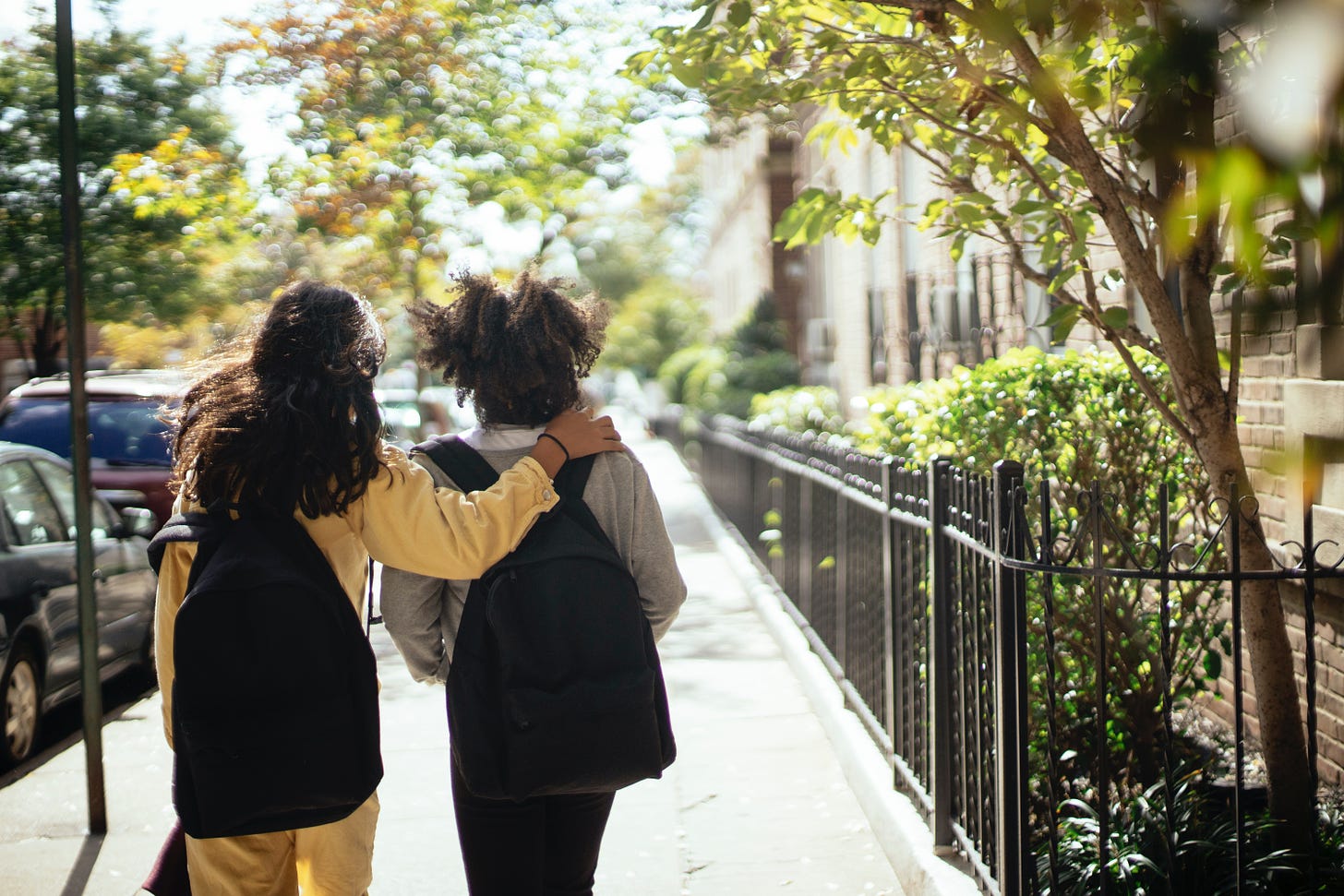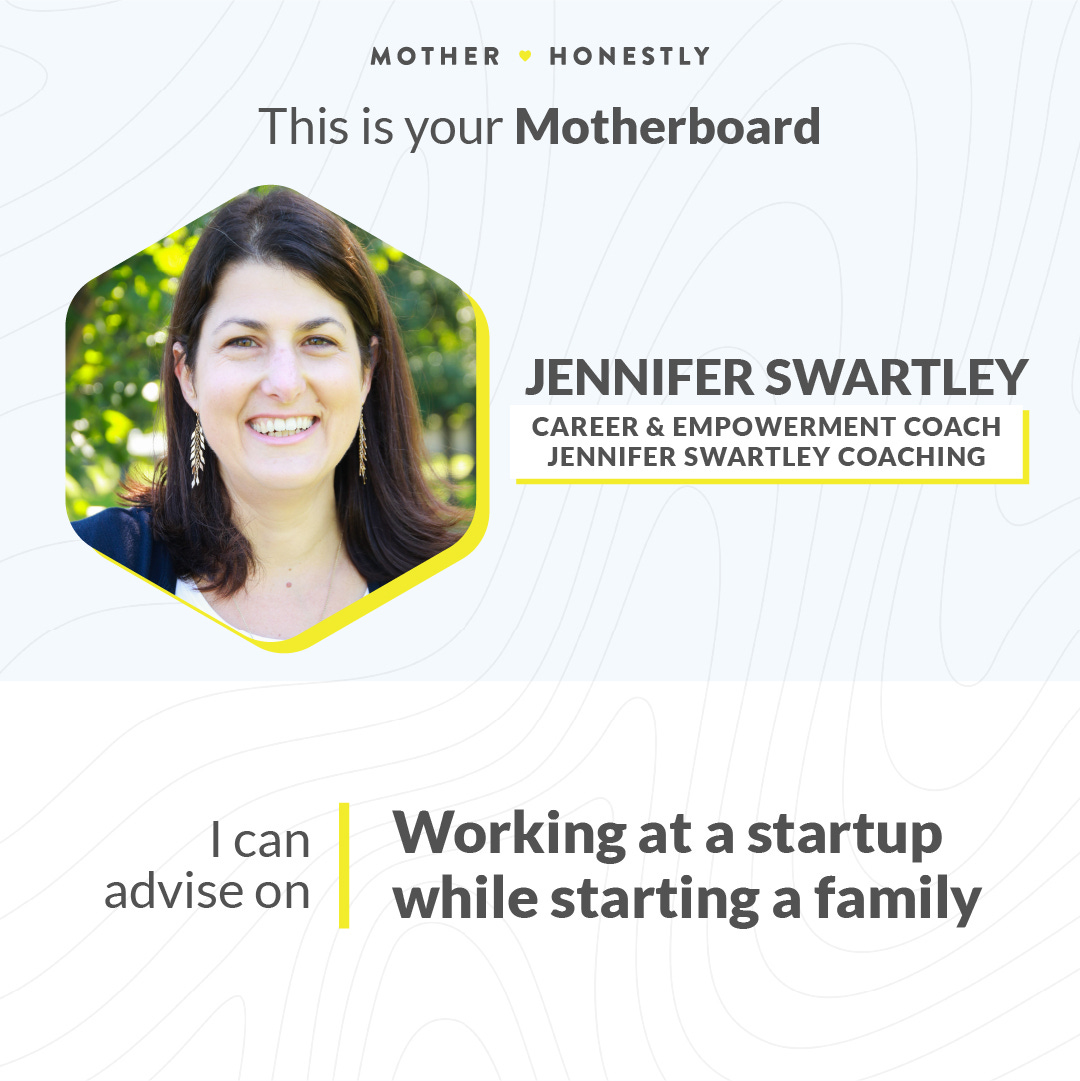We Weren’t Meant to Sustain This Much Worry
Panic is now a regular feature of parenting in America.
We shouldn’t have to fear sending our children to school.
My son goes to school in New York City, so I drop him off on a big blacktop, where hundreds of kids and parents mill around in the morning. Lately, I look over my shoulder every few minutes, imagining the carnage if an unstable 18-year-old unleashed his fury with an AR-15.
The kids line up outside because we still have pandemic protocols in place to reduce the number of people congregating inside the building. If we devise another entry system in efforts to reduce our risks of being murdered, do we increase our risks of getting covid?
This is parenting in America right now: constantly weighing one less-good option against another. Worrying that we made the wrong choice. Worrying that we made the right choice, but other parents don’t have the ability to choose at all.
We’re also worrying about how the past two years have impacted our kids’ mental health and academic progress, and wreaked havoc on our careers. We’re worrying about a present where we can’t escape gun violence, and where baby formula and child care is hard to find. We’re worrying about a future that feels less promising for our daughters. Staring at the ceiling every night and worrying, worrying, worrying.
I’m not even the type of mom who is prone to panic. If I were forced to pick a parenting style, I would say I fall somewhere between Survivalist and Good Enough. Logically, I know that children are overwhelmingly safe at school. I know their risks of contracting covid at school are lower than—or at least similar to—other environments. And if they do, their chances of getting severely ill are even lower. My two kids and I tested positive during the Omicron wave; for us, it was milder than a cold. But my immunocompromised uncle died from the disease, and I worry about others like him.
I also try to remind myself that the overwhelming majority of kids will never encounter tragedies like what happened in Uvalde, Texas. While gun deaths are all too common in America, criminologists who study public mass shooters in the U.S. note there have been 13 shootings since 1996 in which four or more victims are murdered in a public location and with no connection to underlying criminal activity, such as gangs or drugs. (This figure predates the shootings in Buffalo, New York, and Uvalde, as well as yesterday’s attack in Tulsa, Oklahoma.) This is, of course, still too many. One life taken is too many, especially when we can act to prevent the scale of these horrors. But it’s important to remember that most districts have already implemented measures to keep students safe, and that there are more than 70 million kids who come home every day from schools across the country.
Still, it’s hard to remain sanguine when gun violence feels so prevalent. In 2020, my family was listening to a holiday concert outside an iconic New York City cathedral when a gunman opened fire. I heard the shots, looked at my husband and my son, scooped up our baby girl, and said one word: “Run.” Last year, two of my closest friends were locked inside a Williams Sonoma for a few hours during a shooting at their neighborhood mall in North Carolina. My 6-year-old son knows that a man was shot in the park across from his school, and since then he worries that a “bad guy with a gun” will break into our apartment.
Even as a parent who tries to look at risk logically, it’s hard to keep the worry at bay. It jolts me awake at night. It interrupts my work and outings with friends. It hovers like a cloud over my days.
I don’t think I’m alone. Even before the pandemic, parents reported spending 37 hours a week worrying about our kids. That’s to be expected. I’ll never forget when I was an overwhelmed new mom, and a stranger playfully said, “Don’t worry! It gets easier after the first 40 years.”
But that worry feels unrelenting now. Type “parents” and “worry” into Google, and you’ll be barraged with a multitude of misgivings: school shootings, crime, racism, covid, smartphones, elderly parents, separation anxiety, finances, formula, nuclear war, wildfires, hepatitis, cyberbullying, the list goes on. And then there’s worrying about the worrying—how all of this impacts our kid’s mental health. A McKinsey survey found that four in five employed parents said they felt concerned about their child’s mental health, and more than one-third rated their concern as extreme.
Sure, many of us are exhausted by two years of pandemic parenting, but I’d wager that the emotional and physical toll of ceaseless worry (in addition to grief) has also played a part in exacerbating the burnout so many working parents say they are experiencing.
One of the latest surveys on the subject by researchers at The Ohio State University found that 66% of parents reported being burned out. Burnout was higher in parents who likely spend a lot of time worrying about their children: It was reported in 77% of parents who had a child with ADHD, 73% who had a child with anxiety, and 72% who were concerned that their child could have an undiagnosed mental health condition.
I’m not sure if we can cut back on worry without correcting the underlying conditions that create so much of it. Unfortunately, our elected leaders seem woefully unwilling or unable to do that. Personally, I’ve decided to unplug as much as possible to prevent myself from falling into despair. But companies can and should play a role in helping their employees manage stress, from expanding their mental health benefits to offering platforms (such as, ahem, yours truly) that provide advice and support on navigating common parenting conundrums.
In the meantime, I’ll be worrying that I’m worrying too much—or not enough.
JOIN US:
The Level Up summit is a must-attend event for women who are ready to reclaim their career mojo and move up the ladder. Register here and join us tomorrow!
BECOME A MEMBER:
Our digital membership helps you flourish at home and in the workplace with:
Access to toolkits, worksheets, resources to manage your household and career.
Monthly Motherhood Conversations with women in the workforce in similar life-stages.
Curated digital events to support your journey personally and professionally.
100+ hours of video content on childcare, household management, outsourcing, managing burnout and more.
BOOK A 1-ON-1 CONSULTATION:
Jennifer Swartley is a certified coach and Fair Play Method facilitator dedicated to helping women design fulfilling lives on their own terms. Having spent 20 years moving up the corporate ladder in marketing, media and at health and wellness startups, while having two young children, Jennifer knows the challenges of juggling work and family. She calls on her background in leadership, mindfulness and relationship coaching to guide women to make heart-centered decisions with confidence. Book Jennifer today!
LOVE TO SEE IT
This Father’s Day, child care provider Vivvi is celebrating dads who share the parenting load with their partners with a social media campaign titled #dadsdoingdropoff. To participate, take a photo or video of the dad in your life tackling a caregiving responsibility, whether he’s doing school dropoff, packing up lunches, or washing that 100th load of laundry (and folding it and putting it away). Post it on Instagram anytime between June 6-18 using the hashtag #dadsdoingdropoff and tag @vivviearlylearn. Then, tag other dads and challenge them to do the same. Let’s show the world that dads can and should be equal partners and parents.
HATE TO SEE IT
The formula shortage is getting worse, and hitting low-income families hardest. Nationally, 23% of powdered baby formula was out of stock in the week that ended May 22, according to reporting by the Wall Street Journal. States in the South and Southwest, including Kansas, Georgia, Texas, Montana and Tennessee, have continued to experience the worst of the shortage.







